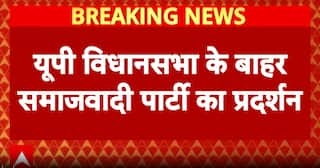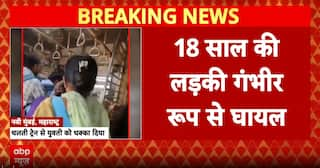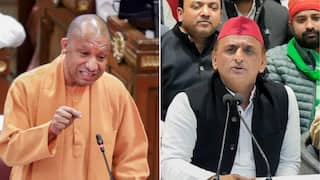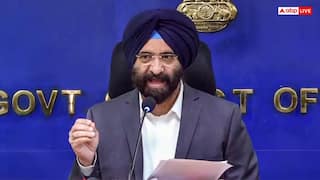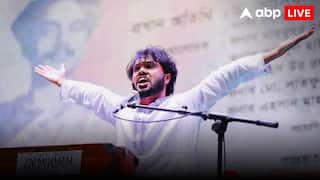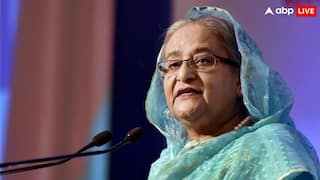Explorer
For dignity of women, nikah halala and triple talaq must go

The apex court had taken suo motu cognizance of the question whether Muslim women faced gender discrimination in the event of divorce or due to other marriages of their husband. Photo: AFP
Nikah halala, the demeaning practice of forcing a woman to sleep with another man in a brief marriage before she can return to the husband who regrets divorcing her, is an abomination that must be abolished along with the freedom of instant divorce (triple talaq) granted to Muslim men in the name of personal laws.
These unjust laws have long rankled with society. Now that Muslim women have taken up cudgels against these evil practices, it is high time that the courts and the Government move to end these pernicious practices that deny justice, equality, and dignity to women.
Many Indians have heard of nikah halala, but have not known that it is a grim reality in the lives of thousands of hapless Muslim women who have hitherto felt helpless to speak out against their plight. But after some women challenged the legality of triple talaq in the Supreme Court, another has found the strength to file a police complaint against ‘rape’ in the form of nikah halala. The Bharatiya Muslim Mahila Andolan (BMMA) is adding the issue of nikah halala to its petition against triple talaq, in the apex court.
The ugliness of nikah halala burst upon the nation when a Muslim man in Jaipur lost his wife in a gamble with a friend and forced her to sleep with the latter on the pretext of nikah halala. In her complaint, the woman said that her property dealer husband had divorced her after 25 years of marriage, but continued to live with her and had conjugal relations, thus negating the need for halala. On August 5, he took her to a friend’s house on the pretext of taking her for a drive and gave her some tablets which caused her to pass out. When she regained consciousness, she discovered that she had had forced relations with his friend.
When she shouted for help, the husband barged into the room and warned her not to make an issue of it, and justified his action in the name of halala. He showed her a video clip of herself with the friend to dissuade her from protesting. But she was undeterred, pointing out that there was no nikah with the friend, hence it was a case of rape; she filed a police complaint, and sought help from the Bharatiya Muslim Mahila Andolan (BMMA). “I cannot get over the insult and shame meted out to me. My husband got me raped by his friend. I feel angry, depressed, scared.”
The episode highlights the unjust provisions in Muslim personal law, which needs thorough scrutiny in conformity with the Fundamental Rights guaranteed by the Constitution to all citizens, regardless of caste, religion, or sex. Zakia Soman, co-founder of the BMMA, points out that, “The clergy misinterpret the Quranic verses, saying if a couple has divorced and wants to get back together, the woman must marry another man and have conjugal relations and then get divorced before she can get back to the first husband. This is inhuman and barbaric and must be abolished”. To their credit, the women activists swung into action promptly and got the victim medically examined to ensure that evidence was not destroyed.
Yet the ease with which this activity can be conducted is highlighted by the fact that the husband allegedly got a “fake nikahnama” with the stamp of the Jaipur city qazi dated August 20, to claim that the woman and the friend were married, and the husband’s brother procured a “fake talaqnama” of the divorce, with her counterfeit signature. Undaunted, she filed a case of cheating against him.
The Jamaat-e-Islami Hind, a constituent of the private mullah enterprise called All India Muslim Personal Law Board that is opposing reform of Islamic laws, admits that the woman’s case was that of rape: “If there was no nikah or any forced nikah, halala is not valid. This is a case of rape…”
But the issue of the “fake talaqnama” proves that talaq, like nikah, can be deemed to be invalid unless counter-signed by both parties. So there is scope to scrutinise Islamic law in the light of reason, justice and fair play.
Muslim activists point out that halala has long been prone to abuse. There are several instances of a drunk husband pronounces talaq and coming to his senses later. Their reconciliation efforts are stymied by the local qazi who says the only way out is halala, and often offers his services for a fee.
There are reports of professional halala specialists who may not divorce the woman without ransom money. Members of the Muslim community say that there are many instances of clerics gifting such hapless women to their friends, and that such cases are known even in the United Kingdom. The whole process ruins the woman’s peace of mind, shatters her dignity, ruins the lives of the children and destroys the entire family. Halala is patently unfair and unjust, and must be banned and deemed illegal.
Prof Tahir Mahmud, former chairman of the National Commission for Minorities, feels that maulvis have impeded reforms in the community and the judiciary must step in and ban triple talaq and abolish the Muslim Personal Law Board. The Board has no legal sanctity, but arrogates to itself the right to speak for the whole community.
Asserting that the Indian Constitution has not committed to protecting the personal law of any community, or exempting it from the jurisdiction of Parliament or State Assemblies or the higher courts, Mahmud asserts that the Constitution gives power to Parliament and State Assemblies to amend and repeal existing laws or pass new laws in all matters which were governed by personal laws at independence. This is Entry V in the Concurrent List.
Even the Freedom of Religion clauses in the Constitution (Article 25 to Article 28) do not refer to personal law. In fact, an explanation in Article 25 says that freedom of religion will not preclude the State from introducing social reforms and enacting laws on subjects traditionally associated with religion.
Muslim women, long driven to the wall, are fast realising that the law is their only hope and are now demanding that it protect them from unequal personal laws and invidious interpretations by clerics.
Disclaimer: The opinions, beliefs and views expressed by the various authors and forum participants on this website are personal and do not reflect the opinions, beliefs and views of ABP News Network Pvt Ltd.
Follow Blog News on ABP Live for more latest stories and trending topics. Watch breaking news and top headlines online on ABP News LIVE TV
View More











